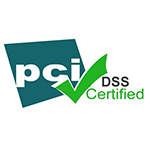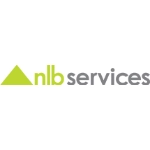© 2025 Next Level Business Services Inc. All Rights Reserved.
Employer Branding Strategy – Essential Steps for Creating Employer Branding
By NLB Services
In this competitive job market, onboarding and retaining staff have become huge tasks for companies. To overcome the problem of onboarding and hiring the right staff who can stay for a long period of time, companies need to have a strong employer branding strategy.
An employer branding strategy is how a company is being marketed to new job-seekers and what existing employees say about your company at work. A good employer branding strategy begins within the company itself and allows you to control and positively make changes to ensure higher talent acquisition and retention.
What is an employer branding strategy?
Let us take you through the meaning of employer branding-
An employer branding strategy is tactics and messaging designed to attract and retain top talent in a company by building a positive reputation as an employer. It includes creating a unique identity that reflects the company’s culture and values that potential employees usually search for in a company. Having an effective employer branding strategy in a company can differentiate it from competitors and attract a pool of good candidates who can meet organizational goals effectively. Elements of an employer branding strategy may include showcasing employee testimonials, highlighting career growth opportunities, emphasizing the company’s social responsibility initiatives, and promoting a positive work-life balance. The ultimate goal is to create a strong employer brand that positions the company as an employer of choice.
Why Is Employer Branding Important?
Employer branding is very important. Here are some employer branding examples for a clear idea-
- It helps companies to attract and retain top talent by creating a positive image of the company. In today’s competitive job market, job seekers have many options to move on and acquire a new job. To prevent this practice very frequently, strong employer branding can help the company to attract the best candidates.
- Employer branding helps candidates to improve their performances, intensifies employee engagement, and increases their productivity. Employees who feel proud of their employer always remain motivated, committed to work, loyal, and happy in their job. It leads to better performance and higher retention rates.
- Strong employer branding positively impacts any company’s reputation and brand image in the marketplace. Strong employer branding helps to attract new customers, investors, and partners who value working with socially responsible and reputable companies.
How to Plan Your Employer Branding Strategy?
Planning your employer branding strategy involves several vital steps:
Start with defining your company’s values and culture. Identify your company’s unique value proposition for the employees by developing a strong employer brand identity with the company’s logo, tagline, color combinations, and unique value proposition. At the same time, employee engagement also matters in employer branding as it gives employees a supportive workplace and recognition which helps them to move further in their career. Effective communication about the company brand through the website, social media, job listing sites, etc. can also be done. It’s important to align your employer branding strategy with your overall business objectives and continuously measure and adjust your strategy to ensure its effectiveness.
Define your Employer Branding goals
Employer branding goals typically include:
- Attracting and retaining top talent.
- Increasing employee engagement and productivity by improving company culture and reputation.
- Enhancing the overall employee experience.
Other goals of employer branding can involve encouraging a diverse and inclusive workplace, supporting employees in promoting their career growth and development,, and fostering a sense of belonging among employees. Ultimately, employer branding goals should be aligned with the organization’s business objectives, leading to competitiveness, profitability, and long-term success.
Define your Employee Value Proposition or EVP
An Employee Value Proposition (EVP) is a set of unique offerings that an organization provides to its employees in exchange for their skills, knowledge, and experience. It is the sum of everything that employees receive in return for working for a company, including tangible benefits such as salary and health benefits, as well as intangible benefits like career development and work culture. A well-crafted EVP helps an organization attract, retain, and engage top talent by highlighting its unique strengths and differentiators. It should align with the company’s mission, values, and culture while meeting its employees’ needs and expectations. Ultimately, a strong EVP leads to increased employee satisfaction, loyalty, and productivity.
Define the channels to promote your Employer Brand
There are several social media channels through which you can promote your employer brand and attract as well as retain top talent. These include:
- Social media: All the platforms like LinkedIn, Twitter, and Instagram should have employees’ stories highlighting the company’s culture and should showcase career opportunities.
- Website: The company’s website should have a dedicated careers page that will depict your employer brand. It should also narrate the perks and benefits of working in your organization through testimonials.
- Employee referral programs: Employee referral programs should be topped with incentives, bonuses, and rewards for the employees.
- Job postings: Make sure the job postings are compelling and reach out to the masses through social media by highlighting the unique benefits of the company while they join your organization.
- Employer review sites: Encourage employees to leave reviews of your organization on sites like Glassdoor to showcase your company culture and reputation to potential candidates. Many candidates prefer to know about the company culture and benefits before joining.
Develop A Measurement Plan
Developing a measurement plan is a crucial step in any project or initiative aimed at achieving specific outcomes. While planning for Employer Branding, it is crucial to set a time frame, and measuring metric through which you can track the progress and results of the efforts that you will put in it.
Conclusion
Employer branding is an essential tool for building a strong and successful organization. It can help companies attract and retain top talent, improve employee engagement, and enhance their reputation and brand image.
Creating a strong employer branding strategy is essential for attracting and retaining top talent in today’s competitive job market. By following these essential steps, you can define your company’s values and culture, create a compelling EVP, develop a strong employer brand identity, engage your employees, and communicate your employer brand effectively.
Talent Solutions








